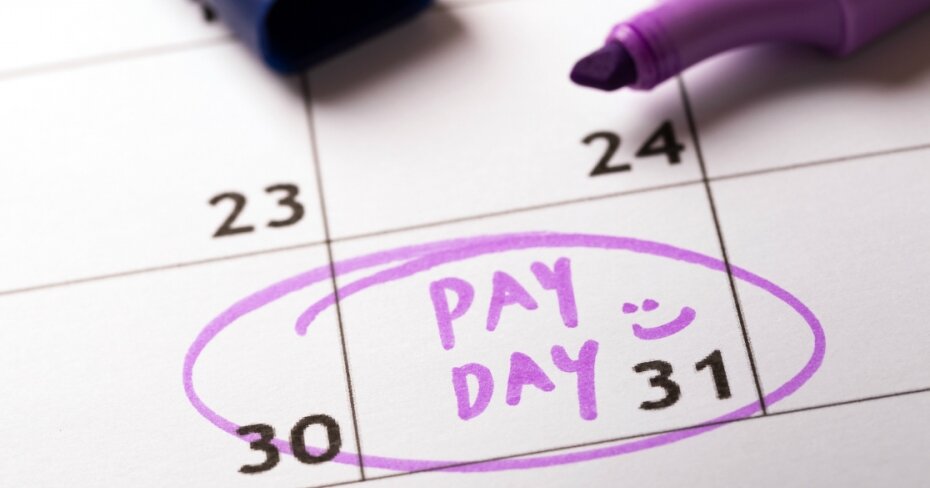Why I’m not a huge fan of automating my bill payments
By: Zandile Chiwanza on January 7, 2020
When I applied to consolidate my debt, my financial advisor pointed out that the loan payment would automatically come out of my chequing account once a month.
“It’s really easy to overdraw your account or miss a payment, especially if you tend to forget to pay bills on time,” he told me. “By automating, you will have less stress.”
I’ve definitely been stressed about money before, so the day I went to sign the paperwork, I remember asking several times how, exactly, automatic payments worked. I was determined not to mess up repaying my debt and looked forward to not having to worry about the consequences of missing a payment again, which can range from pesky late fees to a bad credit score.
I planned to eventually implement automatic payments for other things, too, like my other bills, once I got the hang of the system. But then not even a month went by and this “antidote to stress” my financial advisor spoke of was nowhere to be found. Despite his assurance that automatic payment was the stress-free option, it actually increased my stress. When payday rolled around, I panicked that my money was already spoken for. In fact, I actually missed the experience of manually paying my bills — something that brings me peace of mind. Automation, I realized, is not for me.
Automating isn’t for everyone
Automating your finances comes with its own set of advantages and disadvantages, but a common credo in personal finance literature is that automating bills, savings and, investments is one of the keys to unlocking financial success.
When it comes to automating payments, Eden Ashley, an ex-shopaholic and the voice behind personal finance blog Mint Notion takes a mixed approach.
In cases where she has a recurring bill that’s the same amount every month, Ashley favours automation.
For example, she and her partner automate their monthly mortgage payment.
“This gives us peace of mind knowing it’s paid on time," Ashley tells me.
To help her keep track, Ashley follows the calendar method to budget, which means she writes down all her bills for the month and when they are due.
On the other hand, Ashley is not a fan of automating all her bills because although rare, “mistakes do happen.”
“One time I was charged $55 on my cell phone bill, which is normally $25 per month,” she says.
“If that bill had automatically come out of my chequing account, it would have caused problems for me."
Another scenario in which automating your finances might not make sense is if your income fluctuates because the amount of money you’re receiving is "unpredictable,” explains David O’Leary, founder of Kind Wealth, a subscription-based financial advice platform.
When it comes to savings contributions, however, Ashley and O'Leary agree it’s best to implement automation.
“Figure out how much you can afford to transfer from your paycheck to your savings account each time you get paid,” Ashley suggests, because it “forces you to live on less.”
“Start at the most basic level, the lowest amount that you feel comfortable automating,” O’Leary adds.
“People are busy, they're distracted, and you lose motivation at different times, so if you have at least that [automatic payment] going, it's compounding over time and happening without you having to think about it.”
Why I chose not to automate
In today’s world, having your payments automated is becoming the norm — so much so that people don’t stop to think about whether or not it’s right for them.
If you were to ask somebody “Why are you doing that? Or what’s the benefit of that?” O’Leary says it wouldn't be uncommon to have people who answer with “I don't know, they [financial advisor] told me to do that.”
I knew full well what I was signing up for when I agreed to automate my loan payments, but I ended up calling the bank to opt out and began making the payments manually instead. It eased my sense of dread. And I know now that automating is not for me.
Cases like mine are why O’Leary recommends you take a holistic approach to financial planning. What he calls a "do it with me” rather than “do it for me” approach.
“I think it’s far more effective to empower and educate people so they can be an active participant in the process,” he says, referring to the act of deciding whether you want something like automated payments, rather than just having a bank representative make that decision for you.
While I realized automated bill payments aren’t for me, I have come to accept some level of automation when it comes to my finances. By the time this blog was published, I’d set up automatic contributions to my savings account.
But as for bills? Catch me on payday paying them off on time and manually.
5ec2.jpg)
_03b36.jpg)
